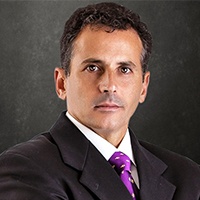Donner Misdemeanor Lawyer, Louisiana
Sponsored Law Firm
-
 x
x

Click For More Info:
-
Babcock Trial Lawyers
10101 Siegen Ln #3-C Baton Rouge, LA 70810» view mapCriminal Defense We Want Your Injury Claim PAID NOW!
At Babcock Trial Lawyers, we work for our clients, maintaining our reputation of excellence as criminal defense & personal injury lawyers in Baton Rouge.
225-500-5000
Not enough matches for Donner Misdemeanor lawyer.
Below are all Donner Criminal lawyers.
Tanner D Magee
✓ VERIFIEDTanner Magee was born in Houma, Louisiana. After graduating from Vandebilt Catholic High School, he attended Louisiana State University where he earne... (more)
Damon Joseph Baldone
✓ VERIFIEDDamon J. Baldone & Associates is a full-service law firm located in downtown Houma. Our main objective is to make our clients’ lives easier. We ta... (more)
FREE CONSULTATION
CONTACT Stephen Babcock Baton Rouge, LA
Stephen Babcock Baton Rouge, LA Practice AreasExpertise
Practice AreasExpertise



